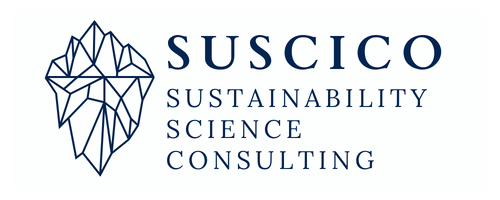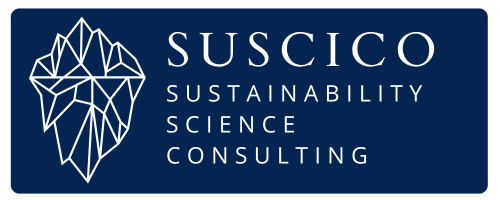Environmental Sustainability Trends: October 2024 Insights
- 25/11/2024
- Posted by: Ildar Usmanov
- Categories: Emissions, Trends, Waste

As environmental sustainability challenges evolve, businesses face increasing pressures to innovate and adapt. From AI’s growing energy appetite to the fight against plastic pollution, companies are navigating complex dynamics. Climate adaptation strategies and supply chain decarbonization are emerging as critical priorities. Here’s a closer look at the key trends shaping the sustainability landscape this quarter derived from the “Sustainability Trends Quarterly Outlook – October 2024” by the ERM Sustainability Institute
Key Findings from the Study
The study identifies four primary technological pathways complemented by targeted policy actions:
AI’s Energy Demands and the Race for Clean Power
The rapid growth of AI is fueling a sharp increase in global energy consumption, with data centers at the forefront. By 2026, their electricity use could double, posing significant challenges to corporate climate goals. Tech giants like Microsoft and Google are committing to renewable energy and exploring nuclear power to offset emissions. However, regions like Malaysia face renewable energy shortages, forcing reliance on fossil fuels. The balance between advancing AI and achieving net-zero targets remains a pressing concern.
Crackdown on Plastic Sustainability Claims
Regulators are intensifying scrutiny of misleading claims about sustainable plastics, holding companies accountable. Lawsuits against major players like ExxonMobil and Walmart are setting a precedent. Meanwhile, companies are investing in innovations such as reusable packaging and closed-loop recycling systems. Yet, some firms are scaling back plastic reduction targets, citing profitability pressures. This trend underscores the need for authentic, actionable sustainability commitments in addressing global plastic waste.
Climate Adaptation and Resilience Strategies
Extreme weather events are driving up financial losses and increasing risks for businesses. Industries are responding with climate-resilient products, like Nestlé’s weather-tolerant coffee variety and low-carbon agricultural solutions from PepsiCo. Insurers are also recalibrating risk models, focusing on secondary perils like wildfires. As banks restrict funding for high-carbon emitters, the cost of inaction is becoming clear. Companies must adopt resilience strategies to mitigate risks and secure sustainable financing.
Decarbonization Across Supply Chains
Supply chain emissions are under the spotlight as companies strive to meet 2030 climate goals. Initiatives like LEGO’s supplier decarbonization program and DHL’s investment in sustainable aviation fuel exemplify proactive approaches. However, geopolitical tensions are complicating these efforts, pushing companies to localize supply chains. Financial incentives, such as Deutsche Bank’s sustainability-linked financing, encourage suppliers to adopt greener practices. Collaboration across value chains is vital for achieving ambitious decarbonization targets.
Why This Matters
Climate-Related Risk Assessment through TCFD and IFRS Frameworks
The Task Force on Climate-related Financial Disclosures (TCFD) and the International Financial Reporting Standards (IFRS) S1 and S2 are becoming central to corporate sustainability reporting. In Malaysia, the Securities Commission has launched the National Sustainability Reporting Framework (NSRF), which provides a clear roadmap for transitioning from TCFD to IFRS standards. This initiative enhances the quality and comparability of sustainability disclosures while ensuring alignment with global reporting practices. Companies are now focusing on integrating climate risks into corporate strategies to meet these evolving requirements effectively.
Supply Chain Emissions Reporting (Scope 1 and 2)
Companies are increasingly prioritizing emissions across their supply chains, particularly Scope 1 (direct emissions) and Scope 2 (indirect emissions from purchased energy). Additionally, Scope 3 emissions, covering indirect emissions such as purchased goods, transportation, and waste, are gaining focus. At SuSciCo, our basic service package includes quantifying Scope 3 emissions in at least six categories, enabling companies to enhance transparency and improve their overall carbon footprint management..
How SuSciCo Can Help
SuSciCo is uniquely positioned to help businesses align with these emerging trends. We provide end-to-end support in assessing climate-related risks, guiding organizations through the NSRF roadmap to transition from TCFD to IFRS standards. Our expertise in quantifying Scope 1, 2, and 3 emissions ensures that companies remain competitive and compliant while building sustainable value chains. Our expertise includes:
- GHG Accounting: Comprehensive emissions tracking and reporting.
- Product Carbon Footprint (PCF) Assessments: Measuring and reducing environmental impacts across product lifecycles.
- ESG Reporting: Ensuring compliance with GRI, TCFD, and Bursa Malaysia sustainability frameworks.
- Green Supply Chain Consulting: Supporting businesses in integrating sustainable practices into procurement and operations.
Ready to take your sustainability initiatives to the next level? Reach out to us today to discuss how we can support your goals. Together, we can make a lasting impact.



